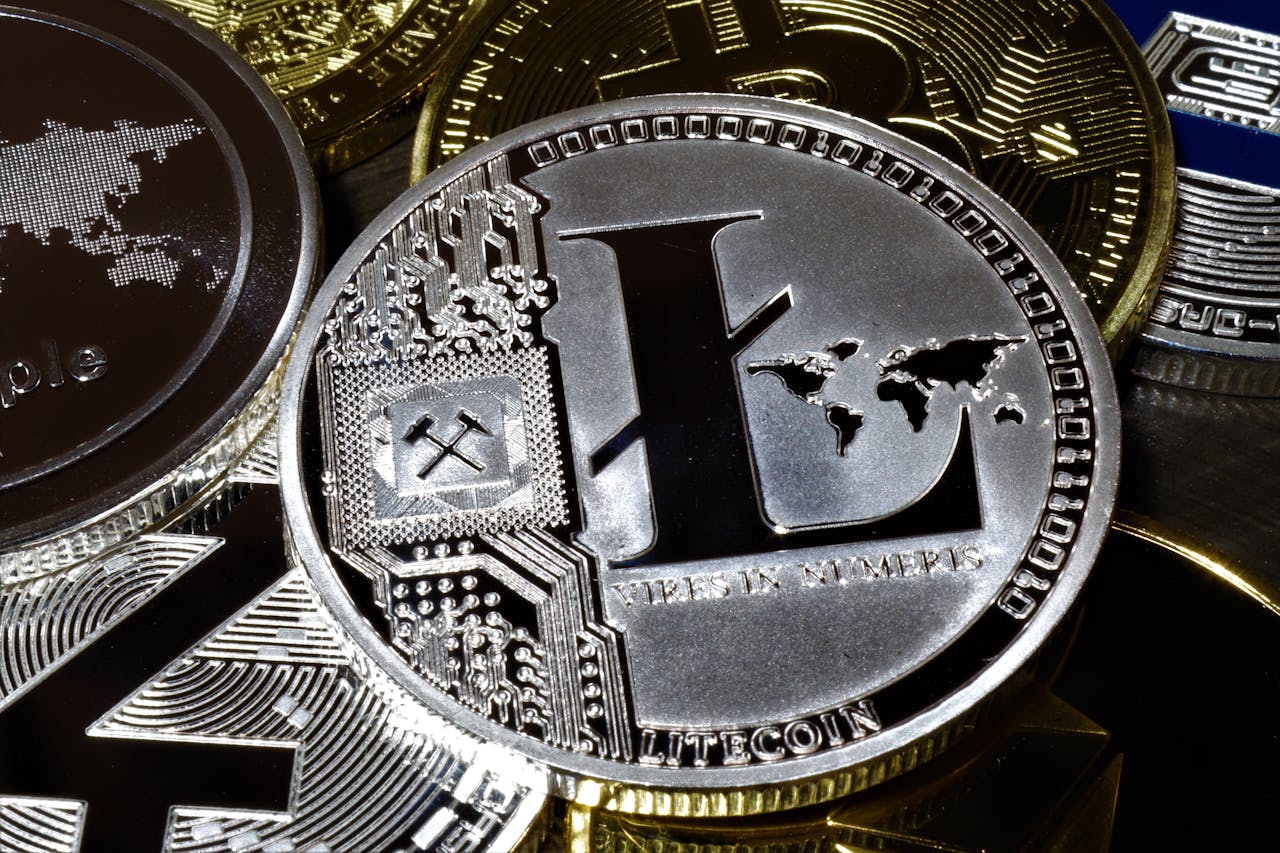Link copied
Senate passes stablecoin bill, a major victory for the crypto world.
crypto :: 9hrs ago :: source - yahoo finance
By David Hollerith and Jennifer Schonberger
 Sen. Elizabeth Warren, D-Mass. (AP Photo/Jose Luis Magana)
Sen. Elizabeth Warren, D-Mass. (AP Photo/Jose Luis Magana)
The Senate on Tuesday passed a bill that would establish the first federal framework for dollar-backed cryptocurrencies known as stablecoins, a major victory for an industry that has pushed for more favorable oversight in Washington, D.C.
Though passage of the GENIUS Act in the upper chamber by a vote of 68-30 won’t yet make the new legislation law — it still needs approval from the House and President Trump — the crypto world is already lauding the bill’s swift progress as a major step.
“I feel really good about [this bill],” said Dante Disparte, chief strategy officer and head of global policy and operations at Circle (CRCL), the largest US stablecoin issuer.
Circle’s stock has soared roughly 400% since its debut day of trading on June 5, a sign of growing investor enthusiasm for stablecoins as the legislation advances in Congress.
Coinbase (COIN) chief legal officer Paul Grewal said on X that "a year ago I would’ve thought this at best was a fever dream. Think for a moment on how far we’ve come."
The GENIUS Act, which stands for “Guiding and Establishing National Innovation for US Stablecoins,” sets a framework for how US companies can issue and manage dollar-backed stablecoins for payments.
It bans members of Congress and their families from earning profits from stablecoins but not President Trump and his family, an omission that has irked some Democrats and slowed progress on the legislation this spring.
Read more: Trump has called for a strategic bitcoin reserve. How it would work.
Trump is deepening his own financial involvement in stablecoins as the legislation advances. World Liberty Financial, a new crypto startup backed by President Trump and his sons, has launched its own US-dollar-pegged stablecoin (USD1) in partnership with BitGo.
If the legislation clears the House, it is expected to unleash a wave of new stablecoin entrants as traditional companies ranging from reportedly giant lenders to mega retailers are already considering whether to issue their own coins.
“We're working with the industry, working individually,” Bank of America (BAC) CEO Brian Moynihan said of BofA’s stablecoin prospects last week at a Morgan Stanley conference.
Earlier this month, Bank of America and other big banks convened to explore prospects for launching a collaborative stablecoin network. The Wall Street Journal also reported last week that Amazon (AMZN) and Walmart (WMT) are exploring stablecoin opportunities.
The new wave of competition could upend the traditional payment system, especially if merchants look to get around conventional card-based networks such as Visa (V) and Mastercard (MA).
“While we continuously explore new payment technologies in efforts to support our customers, we are not piloting any programs and do not currently have any plans in place to issue our own stablecoin,” a Walmart spokesperson told Yahoo Finance.
The legislation currently before the Senate would empower the Federal Reserve and the Office of the Comptroller of the Currency (OCC) to oversee stablecoin issuers that hold $10 billion or more in assets, while smaller issuers would be under the purview of state regulators.
All issuers would be required to hold reserves in cash or US Treasurys, undergo regular audits, and publicly disclose their holdings and redemption processes.
Like money market funds, the tokens must aim to be redeemable at face value. But unlike money market funds, stablecoins under this bill cannot pay interest.
Stablecoins are touted by their proponents as a haven from crypto’s wild volatility and a safer place for traders to store their gains because they can be pegged to non-crypto assets like the dollar.
Their near-instant settlement and programmability also carry advantages proponents believe could enhance cross-border transactions and wider access to the US dollar.
“I think with the GENIUS Act, we actually have the right thing,” Disparte said. “You have every issuer, whether a bank, a credit union, or a non-bank, would have a common regulatory floor under which they would operate.”
But there are still concerns among detractors that there could be risks with stablecoins, including the possibility of panic runs among investors.
Circle’s Disparte says the bill will 100% protect financial stability, citing criminal penalties for failing to report transparently and submit to an audit, a review, or an attestation of reserves.
Consumer protection issues, he added, are addressed "through and through" in this bill.
Some Democrats, including Sen. Elizabeth Warren, expressed concerns that the bill would allow giant tech companies such as Amazon or Meta (META) to launch their own stablecoins.
But Disparte noted that the bill stipulates that any tech company wanting to issue a stablecoin would have to go through a special committee at the Treasury Department to get approval.
The head of that department, Treasury Secretary Scott Bessent, has high hopes for what this legislation may mean.
He told lawmakers last week that the legislation could help push the US stablecoin market beyond $2 trillion by the end of 2028. The global stablecoin market currently sits around $250 billion, according to data provider DeFiLlama.
Now that the bill has passed the Senate, there may be an effort in the House to attach it to a wider bill offering more sweeping regulation of all crypto assets.
And that may complicate matters. Trump has said he wants to sign stablecoin legislation before Congress leaves for its August recess.
Source: Yahoo finance
This week top market trends.
-
Nvidia's Revenue Hits Record High, But China Sales Restrictions Squeeze Profits
2025-05-29 :: companies :: investopedia -
Oil Holds Near $65 as Market Volatility Grinds to a Halt
2025-06-06 :: commodities :: bloomberg -
BOJ's inflation warning leaves room for another rate hike this year
2025-06-18 :: watchlist :: reuters -
US dollar and other safe haven currencies rise as Israel strikes Iran
2025-06-13 :: foreign exchange :: reuters -
China Urges US to Comply With 'Hard-Won' Deal After London Talks
2025-06-11 :: general :: bloomberg
Recent global market news
-

These 7 Stocks Are Analyst Favorites For Magnificent Earnings Growth,Meta Joins List
2025-06-13 :: :: ibd



:max_bytes(150000):strip_icc()/GettyImages-2207441203-ce430326e0d44e53b804c29be4965c35.jpg)
